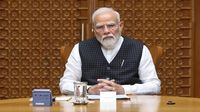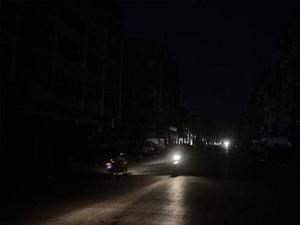In a significant diplomatic shift, Indian Prime Minister Narendra Modi has canceled his planned visit to the Netherlands amid escalating military tensions with Pakistan. The cancellation, announced on May 7, 2025, comes in the wake of a series of violent incidents that have raised alarms in the region.
Modi was scheduled to visit Norway, Croatia, and the Netherlands from May 13 to 17, 2025. The highlight of this trip was to be the third India-Nordic Summit in Norway, where he was set to co-chair discussions alongside leaders from Denmark, Iceland, Sweden, and Finland. This summit aims to strengthen partnerships in areas such as trade and environmentally friendly economies, reflecting a growing interest in collaborative initiatives.
However, the situation took a dire turn on May 6, when Indian forces launched attacks on multiple locations in Pakistan. This military action was a direct response to a deadly attack by militants in the disputed Himalayan valley of Kashmir, which resulted in the deaths of at least 26 people and injuries to 46 others, according to reports from Pakistan.
The attacks were part of “Operation Sindoor,” a swift military response targeting terrorist infrastructure in both Pakistan and Pakistan-occupied Kashmir (PoK). A government press briefing revealed that nine terrorist sites were struck during this operation, underscoring India’s commitment to counter-terrorism efforts.
As tensions mounted, KLM, the Dutch airline, announced on the same day that it would cease flying over Pakistan. A spokesperson for KLM confirmed this decision to the Telegraaf, stating, “We are continuously monitoring the situation.” This decision follows similar announcements from other major airlines, including Air France, British Airways, Lufthansa, and Emirates, all of which have opted to divert flights to ensure passenger safety.
Interestingly, just two days prior, on May 5, KLM had indicated it would continue its flights over Pakistan, leaving many to wonder about the rapid change in circumstances that led to the decision to avoid the airspace altogether. The spokesperson could not provide a timeline for how long this detour would last or the potential delays passengers might face as a result.
The broader implications of Modi's canceled trip extend beyond immediate safety concerns. His absence from the India-Nordic Summit could hinder ongoing discussions about climate change, trade partnerships, and regional stability, all of which are critical for fostering international cooperation.
In addition to the canceled trip, Modi and Defence Minister Rajnath Singh had previously skipped attending the Victory Day Parade in Moscow amid rising tensions along the Line of Control (LoC), the de-facto border between India and Pakistan. Kremlin spokesperson Dmitry Peskov noted that India would still be represented at the parade, albeit at a different level. This annual event commemorates the Soviet Union’s victory over Nazi Germany in World War II, highlighting the significance of international military alliances.
The current situation has sparked varied reactions from political leaders and analysts alike. Some view Modi’s military actions as necessary steps to ensure national security and respond to terrorism, while others express concern about the potential for escalating violence and its impact on diplomatic relations.
As the region braces for further developments, the international community watches closely. The delicate balance of power in South Asia remains precarious, and the ongoing conflict between India and Pakistan continues to pose significant challenges for peace and stability.
In summary, the cancellation of Modi's trip to the Netherlands is a clear indication of the pressing issues at hand, as military actions and diplomatic relations intertwine in a complex web of regional politics. The situation remains fluid, with heightened vigilance necessary as both nations navigate these turbulent waters.




